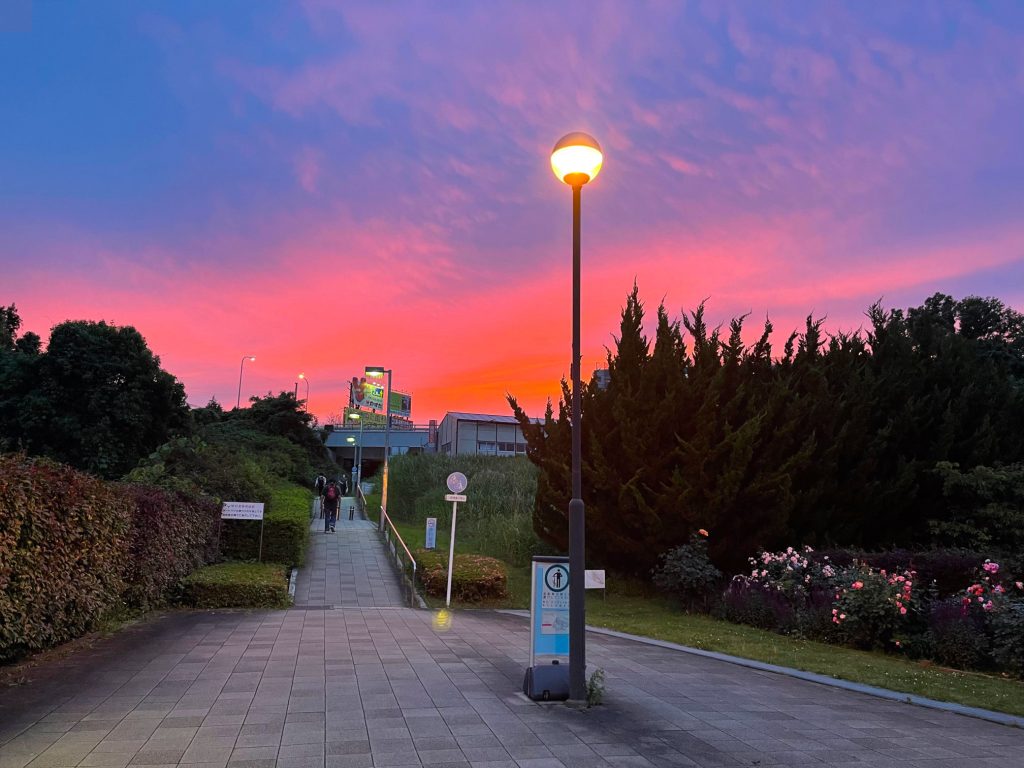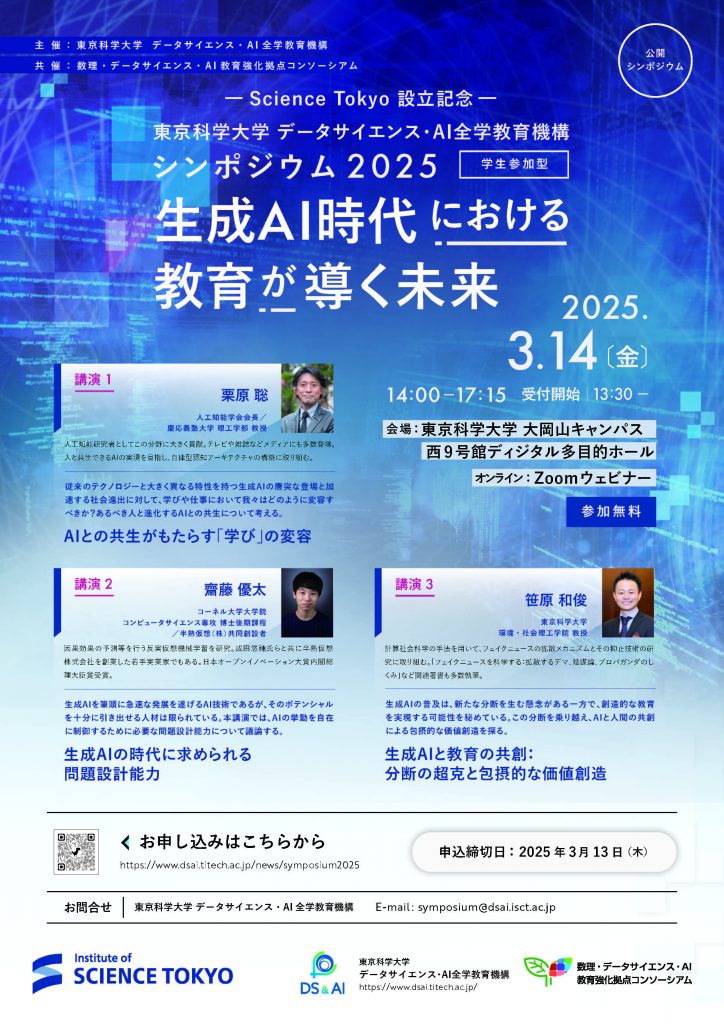Interview No.17 LI CHAO
工学院
My name is Chao LI. I come from Hunan province in China. I have obtained my bachelor’s degree from the Dalian University of Technology in 2017. Then, I joined Tokyo Tech and completed my Master of Engineering in 2020. Currently, I am a 3rd-year doctoral candidate just having done all the necessary documents for graduation. In addition to conducting my research and studying with the Academy for Super Smart Society, I spend my spare time listening to music, watching dramas, and especially walking in nature. What I like the most about Tokyo Tech is the nature around the Suzukakedai campus.
研究概要 / Research Outline
My research topic is artificial intelligence and, more in detail, ways to improve the training of neural networks. I have worked as a part of a project on cow behavior classification. The requirement is to classify accurately behaviors such as resting, ruminating, grazing, and so on. The basis is an accelerometer sensor placed in a collar. This application is quite typical of internet-of-things issues because sensors produce time series, but in many cases, we cannot send all data to the cloud. There is a need to classify the behaviors in the device itself. Two issues are faced, the small amount of data and the different frequencies of the behaviors. One approach to solve these problems, the one I have been focusing on, is called data augmentation. Basically, it involves generating new data based starting from the available measurements. Today, many data augmentation methods for time series are borrowed from image processing. But they can corrupt the time series, and it is unclear how to judge the validity. To reduce the imbalance problem, oversampling and undersampling are used. But their statistical properties are not desirable. I had two goals in my research. One was introducing new techniques specifically for time series. The other was evaluating them following a clear path from the most basic to the most advanced. In my doctoral thesis, I introduced three possible solutions. One, the simplest one, is simulating collar rotation to get additional data. Another, more advanced, combining this with other operations that are reasonable for the behaviors, such as time inversion. And finally, the most advanced one is based on abstract mathematical processing that gives surrogate data. Eventually, these approaches enable one to improve considerably the classification accuracy of neural networks, without changing their size. Because this enables the realization of more useful edge devices for smart farming, also known as precision livestock farming, it eventually supports in several ways the improvement of animal welfare conditions and production efficiency and sustainability. In the future, these approaches may apply to other problems, too, for example on wearable devices.

Good results need perseverance, always.
It has been a big honor for me to study at the Tokyo Institute of Technology and join the Ito-laboratory (Nano Sensing Unit) in the Institute of Innovative Research. I feel I have learned very much from many viewpoints and become more ready to make a contribution to society. I appreciate deeply the support from “Cross the border! Tokyo Tech Pioneering Doctoral Research Project”, allowing me to conduct my research and complete it successfully. I am also deeply grateful to the many people who helped me get the chance to study at Tokyo Tech and who assisted me to get my Master’s degree first, and then my Ph.D. degree. As usual in life, there were many challenges and difficulties both before and after joining Tokyo Tech, but finally, I made it. I feel this is not only my achievement but also the achievement of my family and of everyone who has supported me until today.
Here, I would like to talk about one aspect of my doctoral research that I think is relevant to many other students in different fields, too. Research is really complicated, and it is hard to get new results because there are always excellent people in every field. In my case, in the beginning, it seemed difficult to have truly new ideas. Then, thanks to my advisors, we had one first idea, to try to exploit a trouble -the fact that the collar can rotate, thus rotating the accelerometer axes- as an opportunity to actually generate new time series for network training. This led to a first paper nicely. But then, I felt kind of lost for some time wondering how to move forward… there was no obvious way. Eventually one day the idea came of combining more operations that seemed to make sense given what we know about the behaviors. So, I studied the signals deeply and tried several possibilities one by one, until I found a combination that gave much better results. This was very satisfying but, again, after that, it felt not so obvious how to continue. And then, after a long time of thinking and trying several things, came another idea, totally different from the previous ones, to “borrow” some advanced methods drawn from other areas of physics and mathematics. Eventually, all this landed beautifully into a progression from a very simple method specific to the particular problem and application that I was given, all way up towards a rather abstract method, applicable in principle to many different time series.
The point I want to make is that this wasn’t planned. It could not have been planned. I felt down and lost at several points, particularly because there was no obvious bridge from one idea to the next. And yet, eventually, they became chapters of my thesis that lead from one to the next elegantly. Looking back, I realize the one thing that I have learned the most and that made this possible: perseverance. It would have been very easy to give up at each step, but somehow, I did not, also thanks to other people. So I want to say to other students, do not worry if you cannot see the path to good results right away. It takes a lot of perseverance, like cutting your way through a forest.
Besides, I feel that the moments going back home after a busy day were the really important ones when I would try to sum up in my head if I had made any progress and could see more clearly the path to walk. Sometimes it was evening and those moments were very beautiful in the sunset, and I will always keep this memory. I think everyone should try to find some short time for summarizing at the end of each busy day, otherwise, we get lost.

メッセージ / Message
I hope that all students supported by the “Cross the border! Tokyo Tech Pioneering Doctoral Research Project” can enjoy their doctoral research and get many good results and have fruitful achievements. I want to say to everyone, please be patient, be consistent, and persevere. Good results don’t give themselves away easily, some times it takes a lot of patience to find the direction. But eventually, there will come a time when you can look back, and everything seems to incredibly fit together in a clear, meaningful story. Please take this opportunity to succeed. If you feel lost, absolutely do not give up, just wait, try, try, and try again until good ideas and results will come.



![Online Seminar “Embracing Life Events for Early-Career Researchers” [Feb. 17th]](https://tokyotech-crossborder.gakumu.titech.ac.jp/wp-content/uploads/2025/01/Vol31フライヤー_final-1-709x1024.jpg)
![Cross-border Exchange Workshop 2024 [UPDATE]](https://tokyotech-crossborder.gakumu.titech.ac.jp/wp-content/uploads/2022/08/cb_thumnail_events_03.png)